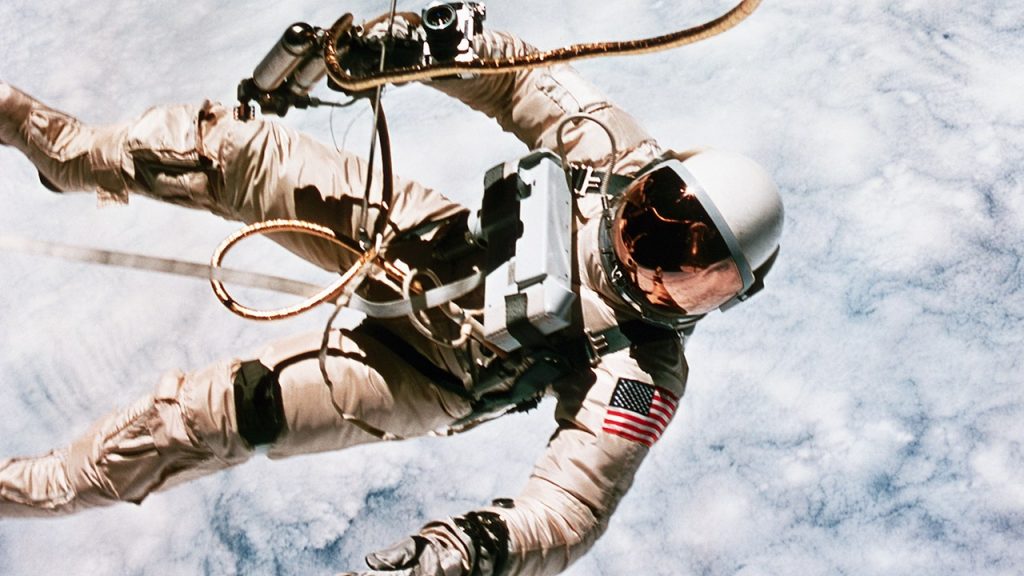On June 3, 1965, Astronaut Ed White made history by becoming the first American to walk in space during the Gemini 4 mission. White spent about 20 minutes floating outside the capsule, using a hand-held maneuvering unit for propulsion. Although the fuel for the propulsion gun ran out three minutes into the spacewalk, White seemed to enjoy the experience, calling it tremendous. He took pictures of Earth from 103 miles above its surface and was reluctant to return to the capsule, despite mission control’s concerns for his safety. Eventually, White agreed to reenter the spacecraft, calling it the saddest moment of his life.
Gemini 4 was a milestone mission for NASA, as it was the first multi-day space flight by the United States and included the first U.S. spacewalk where experiments were conducted. White’s spacewalk was considerably smoother than the first-ever spacewalk conducted by Soviet cosmonaut Alexei Leonov, who faced challenges returning to the capsule due to his expanded spacesuit. Unfortunately, White’s life was cut short less than two years after his historic spacewalk when he, along with two fellow astronauts, died in a fire during a launch rehearsal for the Apollo 1 mission.
During his spacewalk, White reportedly felt the presence of God, a profound experience he shared with his friend, Reverend Jackson Downey. In 2015, on the 50th anniversary of his spacewalk, White was posthumously awarded NASA’s Ambassador of Exploration Award. NASA Deputy Administrator Dava Newman honored White’s achievement, comparing it to the explorations of Lewis and Clark and highlighting its contribution to the eventual goal of reaching Mars. White’s legacy continues to inspire future space exploration efforts.
These significant historical events remind us of the groundbreaking achievements and sacrifices made by early astronauts in paving the way for further space exploration. From Queen Elizabeth II’s coronation on June 2, 1953, to the launch of the first US space station Skylab on May 14, 1973, and the return of Apollo 13 astronauts on April 17, 1970, these milestones mark key moments in space history. Additionally, the departure of Charles Lindbergh for the first solo nonstop flight across the Atlantic on May 20, 1927, is another reminder of the daring spirit of exploration that has shaped human endeavors in the skies and beyond.
Ed White’s spacewalk remains a symbol of human ingenuity and perseverance in the face of challenges and risks associated with space exploration. His willingness to venture into uncharted territory and push the boundaries of what was thought possible paved the way for future generations of astronauts to reach new heights. As we reflect on these historical events, we are reminded of the courage and determination of those who have dared to explore the unknown and expand our understanding of the cosmos. Their legacy continues to inspire and guide us as we strive to reach new frontiers in space exploration.













